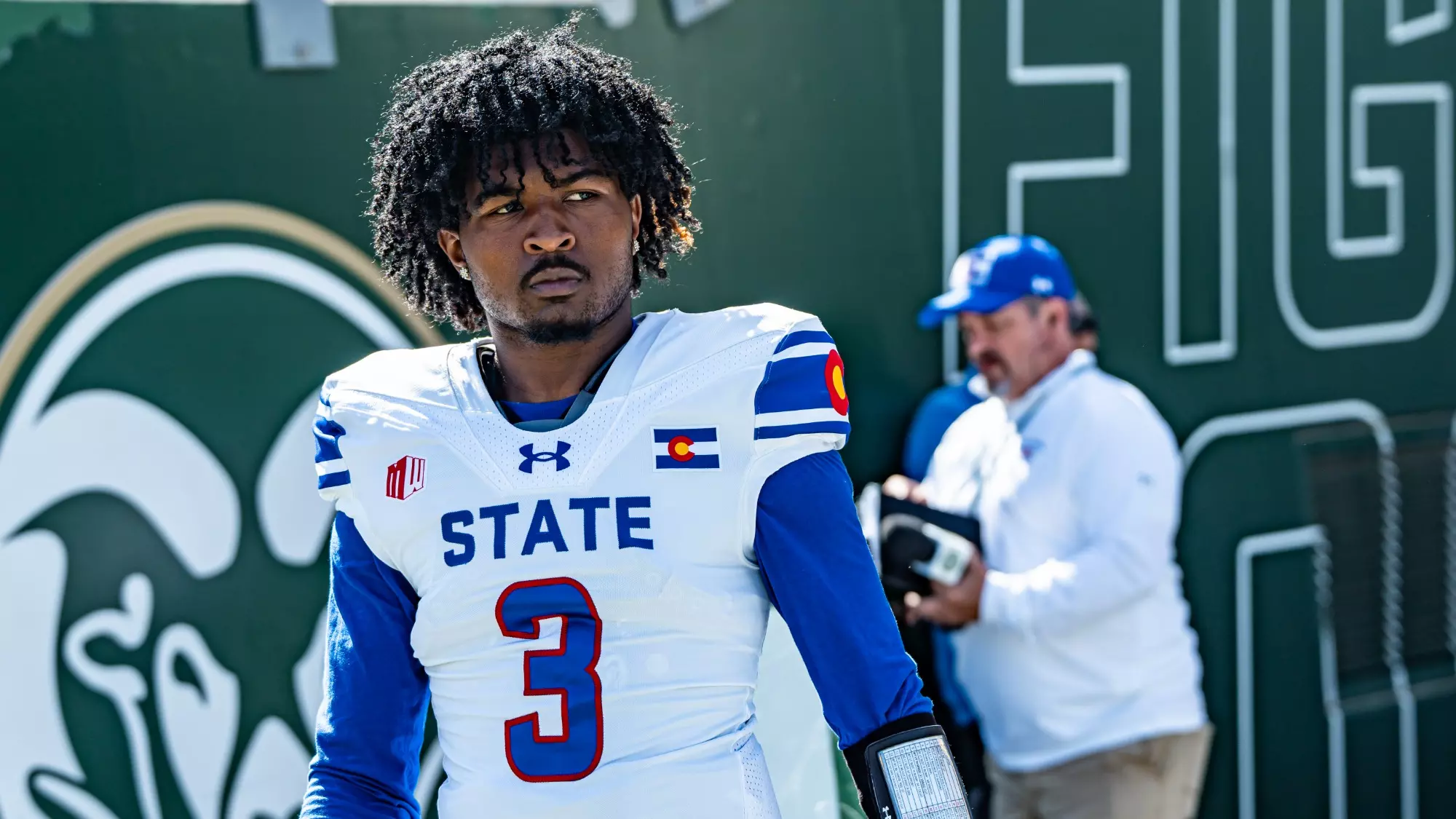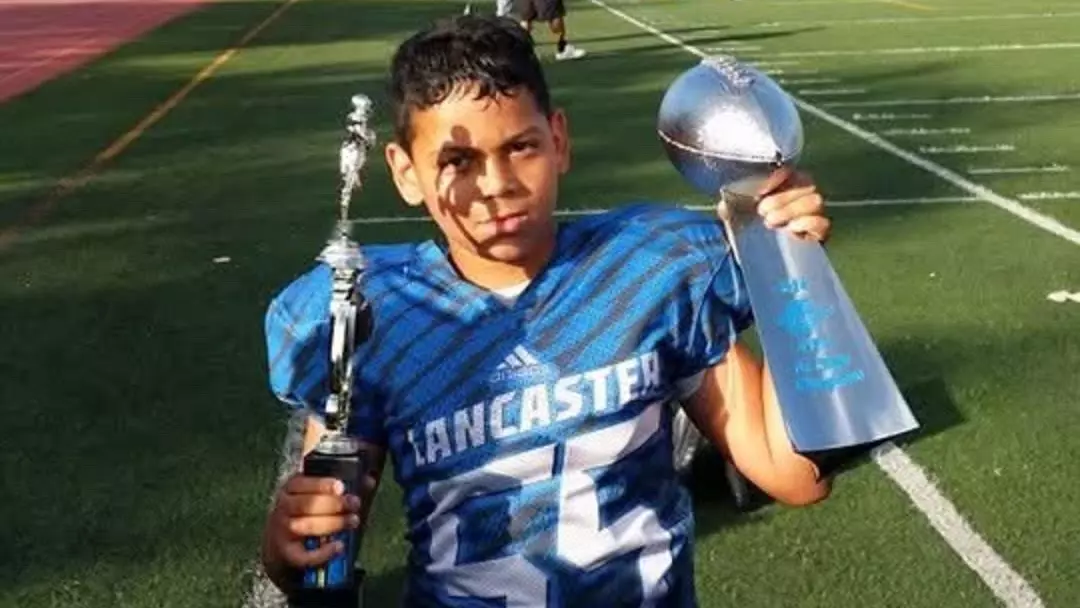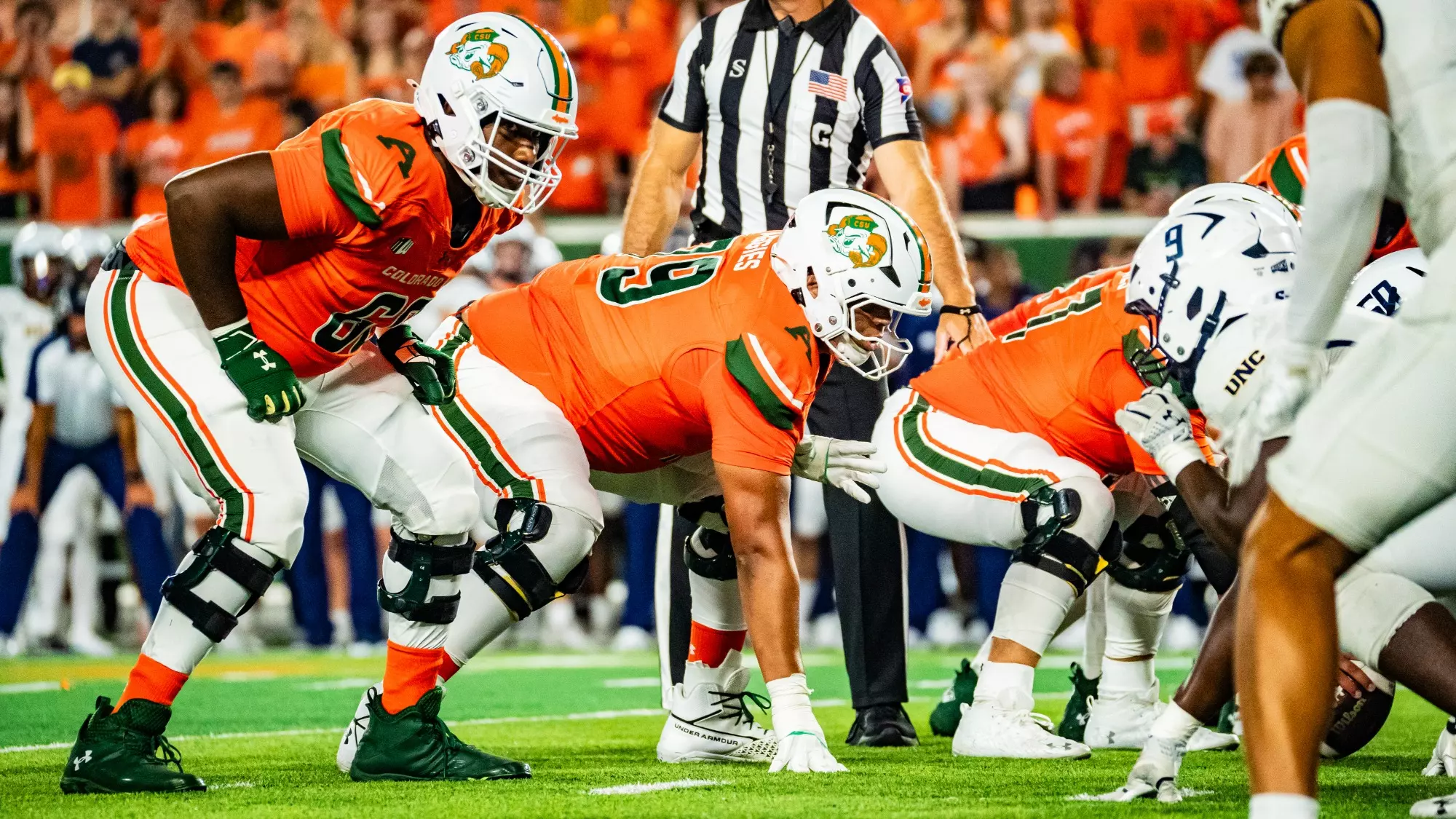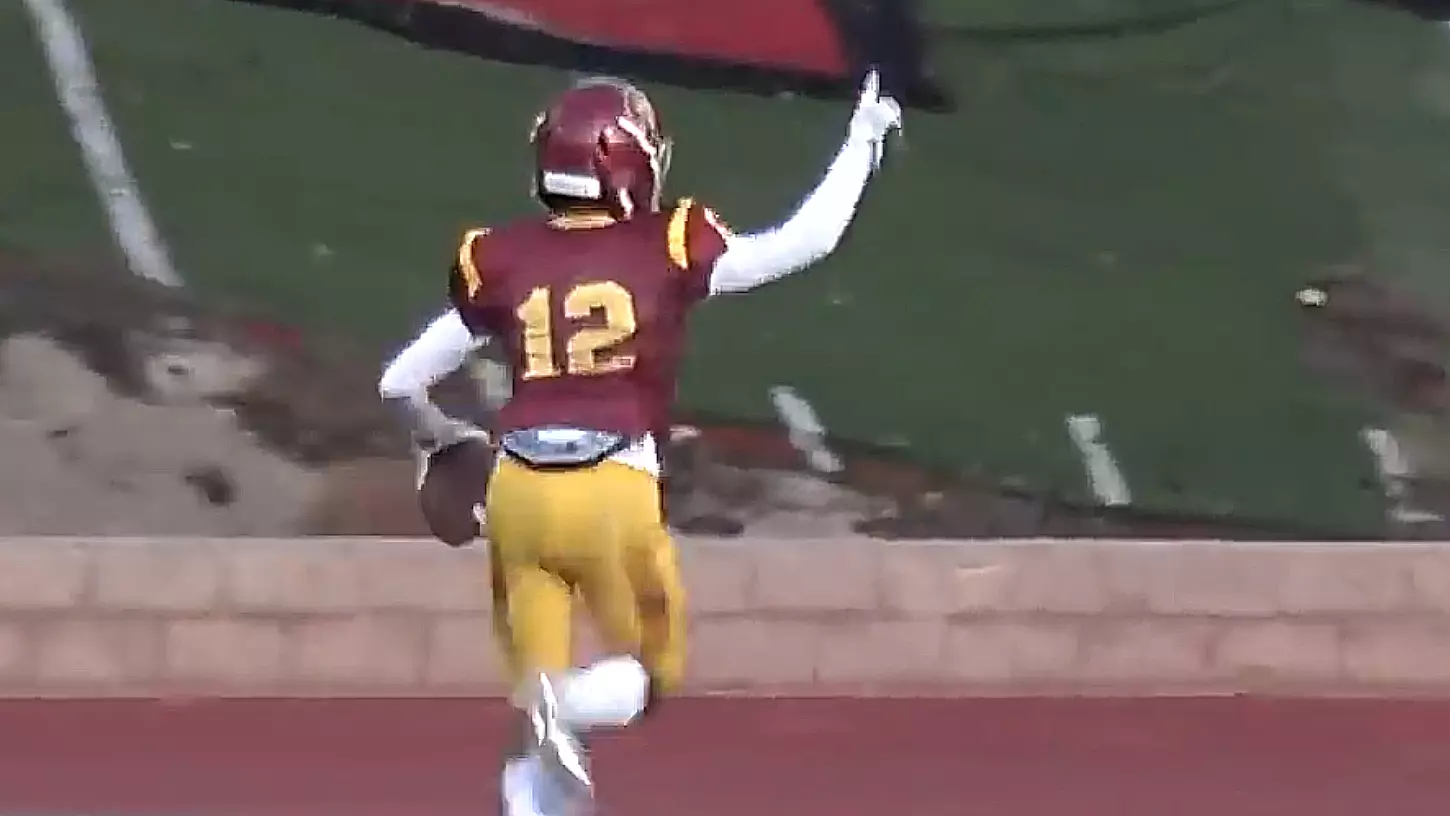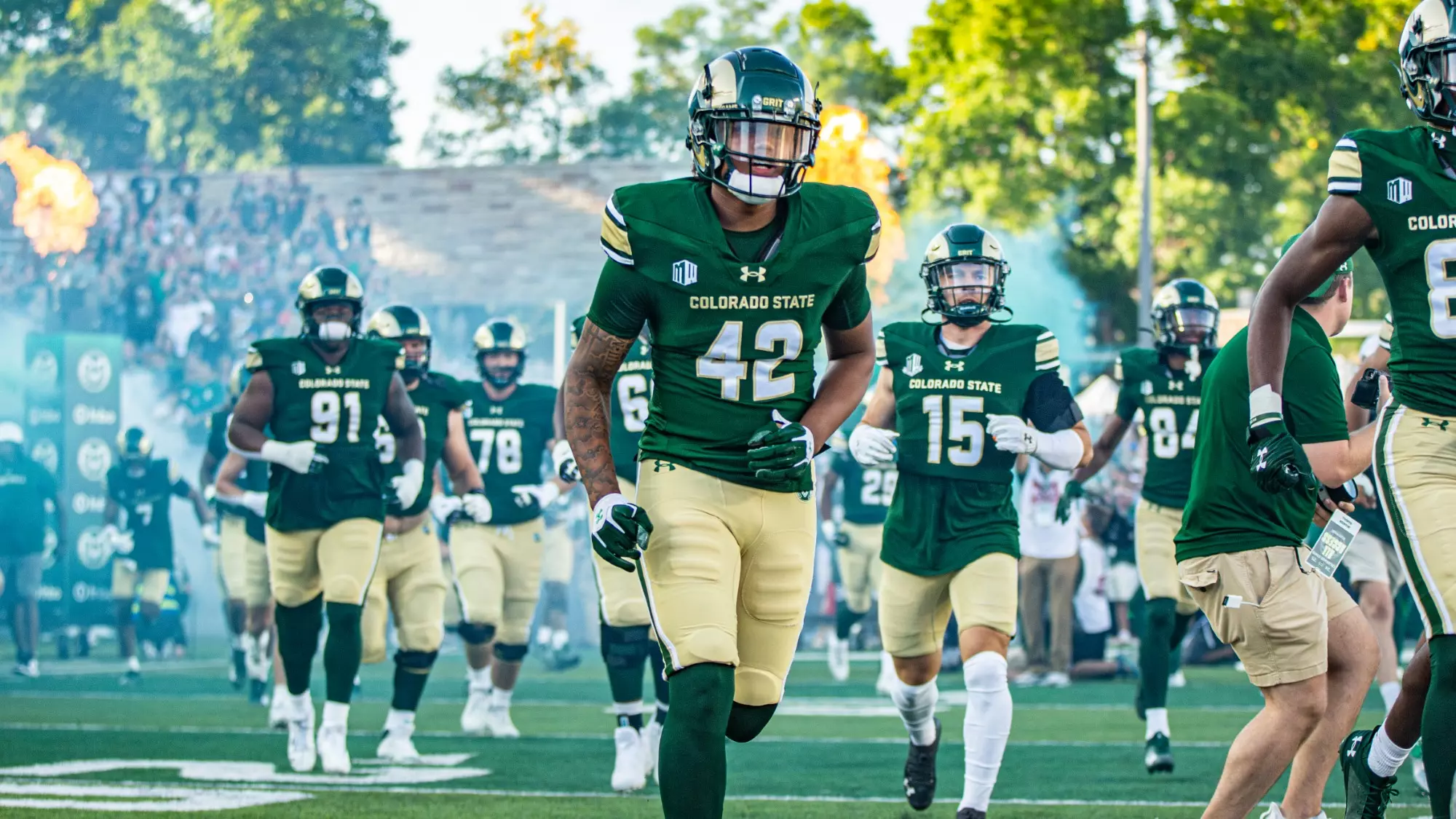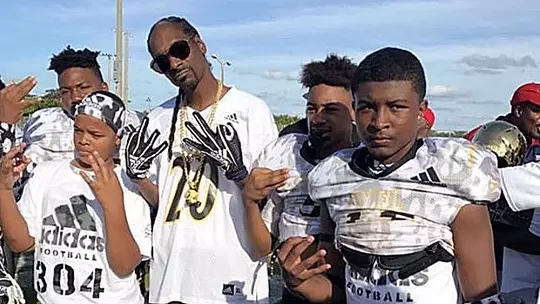
Snoop League Gave Some Rams Lasting Memories
Players hope for the chance to say thanks
Mike Brohard
The initial plan was simple in scope. No grand ideas, no long-term blueprint. Just meet the immediate need and serve the community.
What the Snoop Youth Football League has become has far exceeded any of those early concepts, but the fundamental idea was never lost in the shuffle.
Just ask those who played in the league, with Colorado State sporting four alumni heading to the Snoop Dogg Arizona Bowl on Dec. 28 to face Miami (Ohio).
“Playing in the Snoop League, he cares,” Colorado State true freshman quarterback Darius Curry said. “Playing football kept me from being outside with my friends. It gave me an outlet to focus on. I was playing every day. During times of the season, I couldn’t go to the park. I was at practice, and that for sure kept me out of trouble.”
The league was formed in 2005 with the rapper’s blessing and financial backing of a plan brought to him from products of the neighborhoods the league would come to serve. Eric Scott, who was part of the initial think tank, said it was a time in Los Angeles when leagues they grew up playing in were starting to fall off and fold. That meant the options were groups from further away, or ones which were becoming to expensive for inner city families.
Scott knew the community. He grew up there, played there and coached there, leading Crenshaw High School to six Coliseum League championships between 1999-2005 after his playing days at UCLA. He would later become Jay Norvell’s receivers coach at Nevada, then moved on to be the passing game coordinator at San Jose State. Currently, he’s the head coach at West LA College.
“We were all just talking about it and saying we need something local. We need something a lot of these kids can get involved in,” Scott said. “Other than that, you had the local non-athletic guys who would become part of the local gangs. We were trying to deter all of these talented young men from joining gangs or just being bored, getting into things they shouldn’t be getting into. We knew there was talent; we’d all played a little ball, so you know, you can see the talent walking around the neighborhood. We thought, we need something here, we need something close.
“Snoop was always around the community, and a lot of the guys were always around him during his rap career. We thought, you know what, he’d be a great person to do this through because he’s always trying to do things to help the youth. It was why not start this youth league. He just became the main guy because he had the capital, he had the connections, and he loves football. He played ball. It was kind of a match made in heaven, and I’m just happy and thankful he was around to help us do it.”
A handful of teams would eventually become eight. Then the eight teams had multiple age groups. The success of the SYFL led to copycat leagues around the country, which turned into all-star games between the leagues. The youngsters were now getting the chance to travel, which was huge for them.
“It was fun just traveling. Like, as a kid, you get the experience to travel to places, just to see different things at a young age,” CSU wideout Jordan Ross said. “I thought it was good how Snoop did that for young kids.
“It’s like a free mind. Football was something we could like and love, something we could link to. It gave me a purpose.”
Tell him to come over, just to bring back memories. Tell him he has alumni from his league and his high school on his team. I went to his high school, so he’s got to come.Darius Curry
Scott, who coached a team in the league for a few seasons, said none of that was ever the intention, which is what makes it all work. The league has never been for profit, but about opportunity. While Snoop was always around – he was a coach – it was never about him.
That, Scott said, is why it worked then, why it works now and why it will continue to thrive.
“I don’t think we were thinking about it like that. Normally that’s where your best dreams stem, where the best things happen – from ideas that are just simple ideas,” he said. “We weren’t thinking ahead, weren’t thinking about making money. It wasn’t about the money. It wasn’t about anything other than helping the young men around the neighborhoods. That’s why it got legs of its own. There was nobody thinking selfishly.
“Snoop’s wife was involved. I think she was the first president. The group think was what are we going to do to help these kids? The thought was to make it affordable, give them a way to play and do their thing. It caught on like wildfire. Everybody in the community should be proud because the whole community was behind it. It wasn’t just us. Everybody was behind it and supported it. It doesn’t have legs if the community is not behind it.”
Scott said one of the major rule changes came from Snoop himself, eliminating the weight cap. Scott said there were a lot of bigger players in the area who couldn’t participate because of the rule, and he felt those were some of the children who could benefit most, to get regular exercise and find a sense of purpose.
CSU offensive lineman Aitor Urionabarrenechea was grateful they did because it gave him a home.
“It was better competition and no weight limits. Being from a smaller area and going to LA to play against better competition, it was a different experience,” he said. “For the most part, it was the only league I didn’t have an ‘X’ on my helmet saying I was overweight, like we can’t touch the ball. I had some teammates who were pretty big too, and none of us had problems trying to weigh in or anything like that. That league helped me. It kept me from thinking I had to lose weight all the time.”
A couple of the Rams made super bowls in their time in the league, and Curry traveled with an all-star team. No matter how well their teams did, all five of them – including running back Damian Henderson II and true freshman linebacker Jaden Landrum – said the main takeaway was the experience itself.
It was all positive. They remember the family atmosphere, great music and good food. They all played in the league at various times, but the constant to them was the competition was top notch. It was a key part in getting them to where they are today.
“It really brought out a lot in me. It was mainly a lot of people I know,” Landrum said. “I was born in Pomona, but my team, it wasn’t really that good. We were the younger team, and we were always playing up. But it helped us get better as players.”
It wasn’t the only league they played it, but they agreed it was the one where they had the most fun. And they are part of the pipeline to bigger and better, the hundreds of former SYFL players who have played or are currently in college, some in the NFL, C.J. Stroud and Romeo Doubs among them.
It’s a big reason Doubs ended up at Nevada. Scott remembered him from the SYFL days, and when he was looking for a big target, he thought of the youngster.
“I remembered him as an LA player, which is how I remembered to recruit him. Daiyan Henley of the Chargers, same thing,” Scott said, laughing. “I remember Romeo playing in the Snoop league and he won the Super Bowl at the time. He was playing quarterback. I remember all of those guys growing up and playing. Romeo played a little bit of everything, jack of all trades, a really good athlete. Then you know being blessed, getting a job with Jay, it’s I remember this kid and this kid and this kid.”
Funny how things work out. Scott will watch a college game or a pro game and see a young man, then he remembers the youngster who learned the game in the SYFL. For him, it’s crazy to believe such a simple notion spawned amazing stories. Colorado State coach Jay Norvell has seen the effects, naming 11 players he recruited to Nevada, all products of the SYFL. They were building blocks for a program which went to four consecutive bowl games.
With all of that in mind, Norvell is recruiting Snoop, Scott, Doubs, Eugene Henley and Daiyan Henley to the Colorado State sideline.
“I'm extremely humbled and touched that we can pay tribute to Snoop and Eric Scott, Eugene Henley. We got them all game jerseys, and their going to be honorary captains for us,” Norvell said. “I don't know what that means to the bowl – they ahve to be neutral and all that – but we pay tribute to them, and we give great love and respect for what they've done for the city of Los Angeles and the kids there.”
The goal was to give youngsters in those cities a chance, a positive direction. Seeing many of them create a different life for themselves is just a fantastic bonus.
As for the Colorado State alumni, they think Snoop should come hang out with them on their sideline, say hello to a few players he helped fulfill some of their dreams. They are his products, so they feel it’s only natural for Snoop to be an honorary Ram during the Arizona Bowl he’s hosting.
Curry takes it a step deeper.
“Tell him to come over, just to bring back memories,” he said. “Tell him he has alumni from his league and his high school on his team. I went to his high school, so he’s got to come.”
A guy can dream, can’t he? Some not only come true but become bigger than expected.
Support Colorado State Athletics: Tickets | Ram Club | Green And Gold Guard

